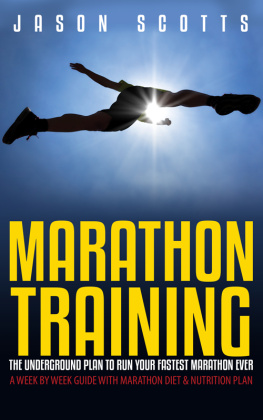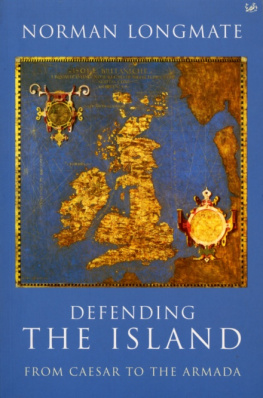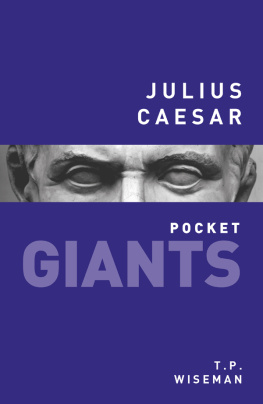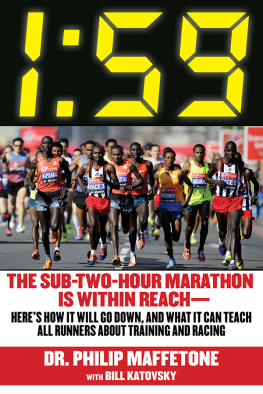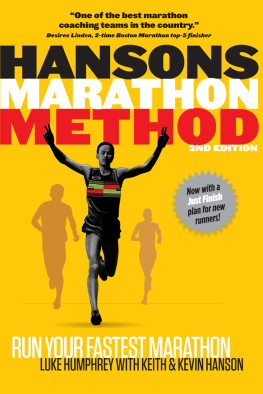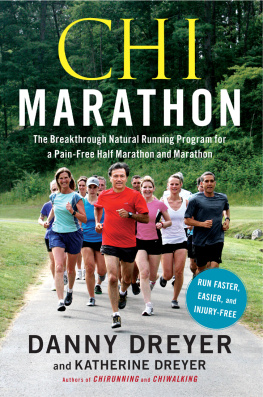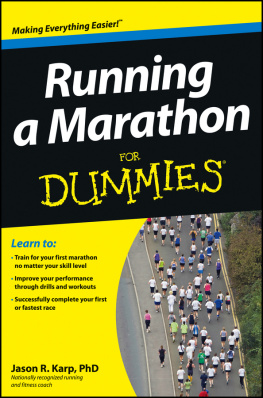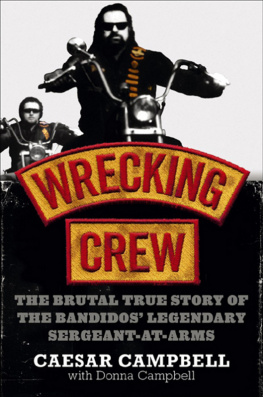Thank you for downloading this Simon & Schuster eBook.
Join our mailing list and get updates on new releases, deals, bonus content and other great books from Simon & Schuster.
C LICK H ERE T O S IGN U P
or visit us online to sign up at
eBookNews.SimonandSchuster.com
We hope you enjoyed reading this Simon & Schuster eBook.
Join our mailing list and get updates on new releases, deals, bonus content and other great books from Simon & Schuster.
C LICK H ERE T O S IGN U P
or visit us online to sign up at
eBookNews.SimonandSchuster.com

Simon & Schuster
1230 Avenue of the Americas
New York, NY 10020
www.SimonandSchuster.com
Copyright 2015 by Ed Caesar
All rights reserved, including the right to reproduce this book or portions thereof in any form whatsoever. For information address Simon & Schuster Subsidiary Rights Department, 1230 Avenue of the Americas, New York, NY 10020.
First Simon & Schuster hardcover edition October 2015
SIMON & SCHUSTER and colophon are registered trademarks of Simon & Schuster, Inc.
For information about special discounts for bulk purchases, please contact Simon & Schuster Special Sales at 1-866-506-1949 or .
The Simon & Schuster Speakers Bureau can bring authors to your live event. For more information or to book an event contact the Simon & Schuster Speakers Bureau at 1-866-248-3049 or visit our website at www.simonspeakers.com.
Map copyright 2015 by Jeffrey L. Ward
Jacket design by Christopher Lin
Jacket illustration by Jonathan Bush
Author photograph by Kim-Leng Hills
Library of Congress Cataloging-in-Publication Data
Caesar, Ed.
Two hours : the quest to run the impossible marathon / Ed Caesar.First Simon & Schuster hardcover edition.
pages cm
1. Marathon running. 2. Marathon runningTraining. I. Title.
GV1065.C34 2015
796.42'52dc23
2014043224
ISBN 978-1-4516-8584-8
ISBN 978-1-4516-8586-2 (ebook)
For Chlo
There is a tide in the affairs of men,
Which, taken at the flood, leads on to fortune;
Omitted, all the voyage of their life
Is bound in shallows and in miseries.
On such a full sea are we now afloat,
And we must take the current when it serves,
Or lose our ventures.
W ILLIAM S HAKESPEARE , Julius Caesar
Contents
Chapter One
Tear Down This Wall
September 2012
S HORTLY BEFORE nine on a bright fall morning in Berlin, Geoffrey Kiprono Mutai prepared to run a marathon faster than any human beingeven hehad run before. A wild, audacious proposition, to propel ones body to such a ragged extreme, and he felt the walls of his quest closing in on him. Years of pain for this one opportunity. Competing voices crowding his head. The loudest saying, If only we could start running!
Mutai is five feet seven inches tall, and 125 pounds. He has a wide, expressive face, with a high forehead, elfin ears, and long, gleaming teeth. Most often, you find him amiable, amused, desirous of news and gossip, a flashy smile close by. But now, at this solemn moment, he looked as vulnerable as a foundling.
There were around 41,000 runners behind him. Penned together, they bobbed and lilted like a gentle sea against a harbor wall. Alongside Mutai at the head of the crowd, meanwhile, were two dozen professional athletes whose liveslike hiswould be marked irrevocably by the minutes to come. As Mutai ran his final warm-up shuttles, the goosebumps on his chest were visible behind his blood-orange running vest: nerves, or the cold, or both.
Mutai attempted to relieve the tension by telling himself that he didnt need to win the race, or make history, to be happy. Anywhere on the podium would be okay, this reasonable voice said. The marathon is tough. Anything can happen.
He knew he was fooling himself. It was true, yes, anything could happen in a marathon, and there were many events seemingly outside an athletes controlincluding the bodys reaction to the stress of racing. No athlete, not even a champion, could know when a cramp or an injury might destroy his chances. So Mutai told himself this thin truththat his effort was enough. Although he knew that nothing but triumph could satisfy him, and even triumph might not suffice, the mental evasion somehow helped him relax. He needed to relax. Tense legs, he knew, couldnt move.
Mutai said his habitual prayers. For clemency. For strength and for courage. For his stringy legs, veterans and repositories of tens of thousands of miles of training, to carry him another 26 miles and 385 yards. But not for a miracle. He would never ask God for a miracle.
Smiles all around him now: the effervescence of expectation. Mutai could not help but smile too. Despite longing for the starters pistol, there would always be a part of him that enjoyed these rich, electrified secondsthe warrior part. He was about to race. Yes, the eyes of the city, and the sport, were upon him. But where else would he want to be? He would shortly express the purest version of his being on the grandest stage imaginable, without saying a word. If the race proceeded as he had dreamed it, he would become not only the world record holder, but a vindicated man. All in a little more than two hours.
Mutai is a Kenyan, a Kalenjin, and a Kipsigis. He was born in the village of Equator, which sits at nearly 9,000 feet in the lush highlands at the western escarpment of the Rift Valley, and, as its name suggests, at the beltline of the world. He is a husband, a father, a son, a grandson, a nephew, a cousin, a coach, a businessman, and a potentate. He is a rich man who grew up without shoes.
As the minutes became seconds, and he toed the Berlin startline in his featherweight Adidas racing flats, he was aware that dozens of less successful athletes depended on him for clothes, accommodation, and transport. He knew his family relied on him for their houses, their food, their televisions, their childrens school fees, and their cars. He also knew that in this race, he had the chance not only to win 40,000 euros for first place and a possible 80,000 euros in time bonuses (30,000 euros for a time under 2:04:30; 50,000 more for a new world record), but also, if he won in Berlin, the chance to seal a $500,000 jackpot for winning the cumulative World Marathon Majors prize for 20112012. And that was just from the organizers of the marathon. His sponsor, Adidas, would also kick in bonuses if he won or became the new world record holder. After agents fees, he could be more than half a million dollars richer by lunchtime. Back home, his friends and family would be huddled around televisions, watching.
In these final moments of stillness, however, Mutai banished impure thoughts and the crowding, conflicted voices. He attempted to focus. Psychologists talk about a Zen-like state of instinctual action in which the greatest sporting performances are attained. They call it Flow. The French cyclist Jean Bobet described a similar but distinct experience called La Volupt , which is delicate, intimate and ephemeral. It arrives, it takes hold of you, sweeps you up and then leaves you again. It is for you alone. It is a combination of speed and ease, force and grace. It is pure happiness.
Mutai has his own term: the Spirit. The way he understood it, the brutality of his training regime125 fierce miles a weekwas endured to attain this sensation. Thousands of hours of suffering for these minutes of sweetness: speed and ease, force and grace. The more harder you train, he would say, the more you get the Spirit.... It gains on you. So far, in his career, the Spirit had allowed Mutai the courage to remake the sport of marathon running, and to destroy previous conceptions of what was possible; to lose his own fear, and implant it in the hearts of his competitors.
Next page


